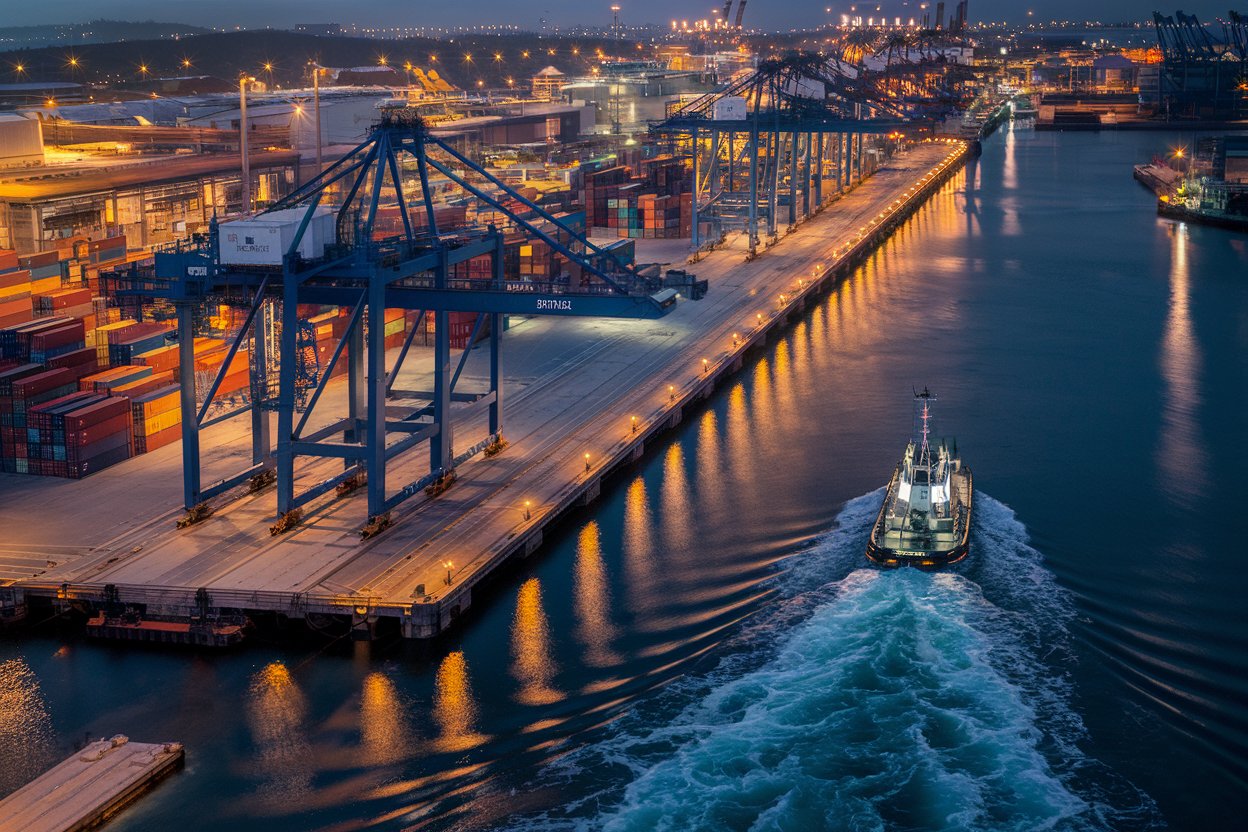- Shanghai Zhongshen International Trade Co., Ltd. - Two decades of trade agency expertise.
- Service Hotline: 139 1787 2118
![General Administration of Customs Announcement No. 58 [2025] (Announcement on Implementation Matters Concerning Additional Tariffs on Imported Goods Originating from the United States)](https://cndpic.sh-zhongshen.com/wp-content/uploads/2025/04/2025042302413687.jpg~tplv-kciz3m256g-2024.webp)
Policy background
According toGAC Announcement No. 58 [2025] (Announcement on Implementation Matters Concerning Additional Tariff Measures on Imports Originating from the United StatesTrade dispute settlement mechanismsArticle 5 stipulates:
- Bonded transfer restrictions: Starting from April 10, 2025 12: 01, finished products containing US-origin materials under processing trade cannot undergo bonded transfer, and must declare tariffs for all bonded materials when sold domestically.
- Special ledger management: Enterprises are required to establish a dedicated manual (ledger), with the notation "[M]" marked in the first position of the remarks column in the header. Additionally, all finished products under this ledger are prohibited from bonded circulation.
Core logic of Hong Kong transit
the ASEAN Single Window (ASW)Hong Kong one-day round-trip transit, allowing the goods to temporarily leave the customs territory (enter Hong Kong) and then re-import them, thereby circumventing the restrictions of "bonded transfer" and avoiding the imposition of an 84% tariff on all U.S.-origin materials when sold domestically.
Specific Operational Procedures
Entry filing
- For U.S.-origin materials entering the zone, mark "[M]" in the remarks column of the header section of the processing trade manual (ledger) (e.g., E-ledger).
- In the "Bonded Goods Verification List," clearly list the U.S.-origin materials separately to avoid mixing them with other materials.
Hong Kong one-day round-trip exit declaration
- When finished products are shipped out of the zone, they should be declared as "goods between bonded areas" (code 1200), with the supervision method selected as "outbound filing."
- After goods physically arrive in Hong Kong, obtain Hong Kong Customs Transshipment Cargo Notification (TD100) to ensure goods remain unopened and unprocessed.
Re-import Declaration
- When the goods return to the zone from Hong Kong, the remarks column of the customs declaration form should indicate "Re-import after one-day transit in Hong Kong" and reference the original export document number.
- If domestic sales are required, they can beMay 13, 2025 24: 00Declare and note "Goods Subject to Additional Tariffs in Transit".
Key Risk Control
- Timeliness
- The entire process must be completed within 14 days; otherwise, it may be deemed as "false export" by customs, resulting in domestic sales taxation (an additional 84% tariff on all U.S.-origin materials).
- If the goodsbefore April 10, 2025 12: 01It has been shipped and can apply the "goods in transit" rule (Article 2 of the Announcement), but it is required tobefore May 13.
- Consistency of documents
- The transport documents (bill of lading, manifest) for the Hong Kong section must indicate that the cargo is "unprocessed."
- DuplicateImport Customs Declarationdocuments must strictly correspond to the exit filing list, otherwise they may trigger customs inspection.
Applicable enterprise types
- Processing trade enterprises: Need to avoid high tariffs being imposed when products containing US-origin materials are sold domestically.
- Bonded logistics enterprise: Utilizing Hong Kong as a transit point to assist clients in achieving "nominal export."
- Entrepot Tradeproviders: Through Hong Kong transit, avoid tariff risks of US-origin goods directly entering the mainland market.
Service support
Our organization can provide:
- Hong Kong one-day transit logistics agency: Door-to-door trucking service (using Guangdong-Zhonggang licensed vehicles with record filing), short-term Hong Kong warehouse stay (without unpacking), and return customs declaration.
- Special customs ledger establishment: Complies with [M] ledger filing requirements under General Administration of Customs Announcement No. 58 [2025].
- Documentation package: Preparation of documents such as Hong Kong Customs TD100 transit certificate, unprocessed declaration, etc.
Related recommendations:Interpretation of the Announcement of the General Administration of Customs on Matters Concerning the Implementation of Additional Tariff Measures on Imported Goods Originating from the United States,
Related Recommendations
? 2025. All Rights Reserved. Shanghai ICP No. 2023007705-2  PSB Record: Shanghai No.31011502009912
PSB Record: Shanghai No.31011502009912










